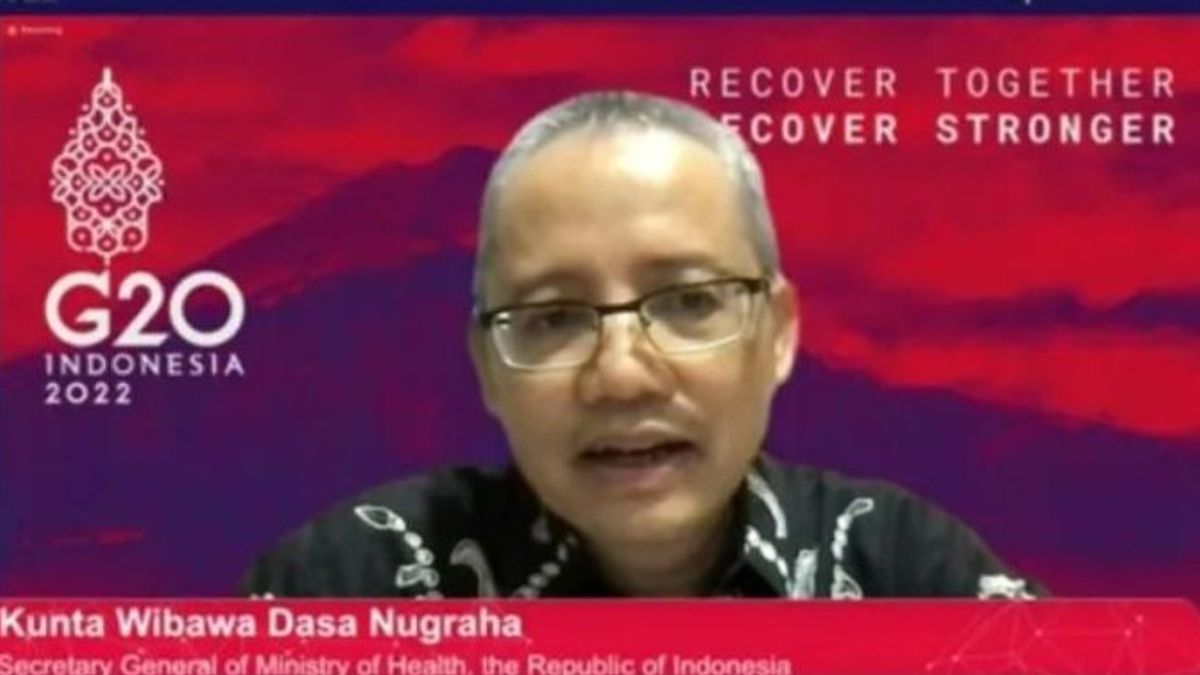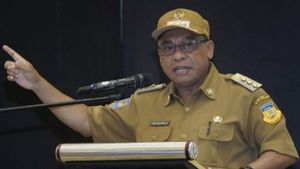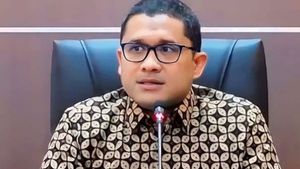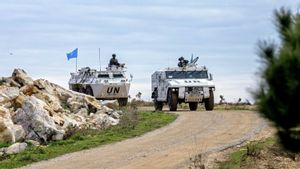JAKARTA - The Minister of Health who is a member of the G20 has agreed to form a Pandemic Fund to tackle the budget gap for handling the COVID-19 pandemic.
Secretary General of the Ministry of Health Kunta Wibawa Dasa Nugraha said the agreement was the result of a meeting of the second Chief Ministerial Meeting in October 2022.
The Pundemic Fund or pandemic emergency fund is also an agenda for talks raised at the G20 Summit in Bali.
Kunta mengatakan komitmen Pandemic Fund yang terhimpun sampai saat ini mencapai 1,4 miliar dolar AS dari 20 negara donor dan tiga philanthropi.
The donor countries are Australia, Canada, the European Commission, France, Germany, China, India, Indonesia, Italy, Japan, Korea, New Zealand, Norway, South Africa, Singapore, England, Spain, the United States and the UAE. Next are three philanthropies, namely The BIll & Melinda Gates Foundation, The Rockefeller Foundation, and Wellcome Trust.
"The agreement is a very promising beginning. Because in just a few months, the discussion of the funds has received such a commitment. This commitment is brought to the G20 Leaders Summit agenda," he said in a press release received in Jakarta, Antara, Friday, November 11.
The pandemic fund, said Kunta, has the potential to support the six main results of the G20 health agenda, including efforts to increase genomic surveillance, encourage the mobilization of medical countermeasures health resources, or efforts to expand vaccine research and manufacturing networks, therapies and diagnostics (VTD).
The COVID-19 pandemic that has hit the world since early 2020 has made all countries in the world realize to fix the global health architecture.
Kunta said the pandemic had a bad social-economic impact. Therefore, the issue of global health architecture is one of the priority issues, in addition to the issue of sustainable energy transition, and the issue of digital transformation, as well as economic issues.
"It is an important point because during the implementation of the G20 high-level independent panel, WHO and the World Bank estimated that there was a pandemic financing gap, around US$10.5 billion in the next five years," he said.
To close that gap, it requires the contribution of the state to be able to equalize the distribution of health services in times of emergency. At the meeting, said Kunta, it succeeded in creating a flow of mechanisms from fund excavations, task force formation, and government boards.
The English, Chinese, Japanese, Arabic, and French versions are automatically generated by the AI. So there may still be inaccuracies in translating, please always see Indonesian as our main language. (system supported by DigitalSiber.id)
Most Popular Tags
#Prabowo Subianto #New Year #airplane accident #Hasto Kristiyanto #nataru #squid game 2Popular
05 Januari 2025, 08:02
05 Januari 2025, 10:15













